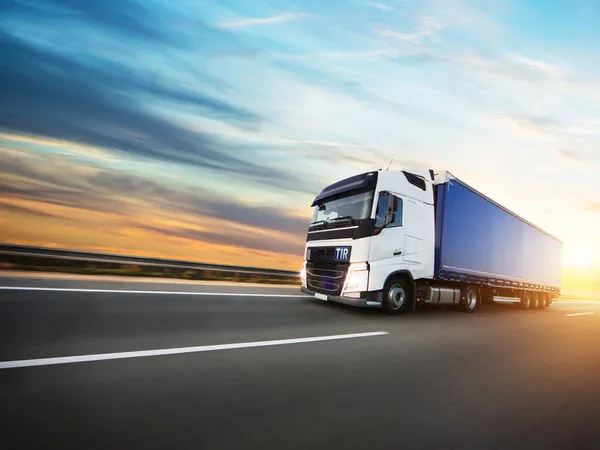TIR, which stands for Transports Internationaux Routiers (International Road Transport), is the only global transit system. The TIR system is currently used in 64 countries, with more set to join. The core principle of TIR is to allow goods to be transported around the world quickly and securely, transiting through countries without having to undergo cumbersome checks at border points.
TIR provides a customs guarantee so that goods can cross international borders and pass through transit countries without paying duties and taxes at each border. Under TIR, at least one part of the journey must be completed by road, but other transport modes can be used as part of a multimodal operation. The TIR carnet – which is the customs document accepted by all the customs authorities of the countries using the TIR system – provides quick passage and also a financial guarantee for the payment of duties and taxes, up to EUR 100,000. The TIR system is centrally managed by the International Road Transport Union (IRU) in Geneva, Switzerland.

Could this system help to make the movement of fresh produce between the European Union and the UK less hazardous, faster and more secure?
“The system is already in place for other goods being imported and exported between the EU and the UK, it also used to transport fresh produce (and much more) to and from 3rd countries,” explains Lucas Lagier Senior Manager of TIR & Transit at IRU. “The UK was part of the European Union for so long that customs duties and taxes stopped being a concern for importers and exporters, but with Brexit they need a solution.”
The issue of what certification and customs documents are needed to import or export fruit and vegetables has been a major stumbling block since the start of the year when Brexit came into force, especially for the re-export of products. In some cases even if the importer/ exporter has all the documents they have been told they would need they are still being stopped at customs and asked for more documents which can cause costly delays.
The TIR system is all done electronically, and all the driver needs to do is fill in the TIR carnet and get it stamped by customs at the departure, border and destination point. The trucks or containers are checked by customs in the country of departure and then securely sealed, the seal remains in place until they reach the final destination.
Loads will of course still have to have all the necessary phytosanitary certificates and export declarations; the real advantages are that they are not stopped at borders, which can be very time consuming, and do not have to complete any supplementary customs procedure. Dover also has a special green lane for TIR transport.
Special Brexit project
“We are now working on a special Brexit project which we will launch soon to help warehouses, freight forwarders and exporters find a TIR holder to transport their goods.”
“Many transport companies are already registered with the TIR system and it is a simple procedure to become TIR accredited. We are also conducting different campaigns to inform companies of how to join.”
For more information: Lucas Lagier
Lucas Lagier
TIR & Transit, IRU Geneva
Lucas.Lagier@iru.org
hwww.iru.org
